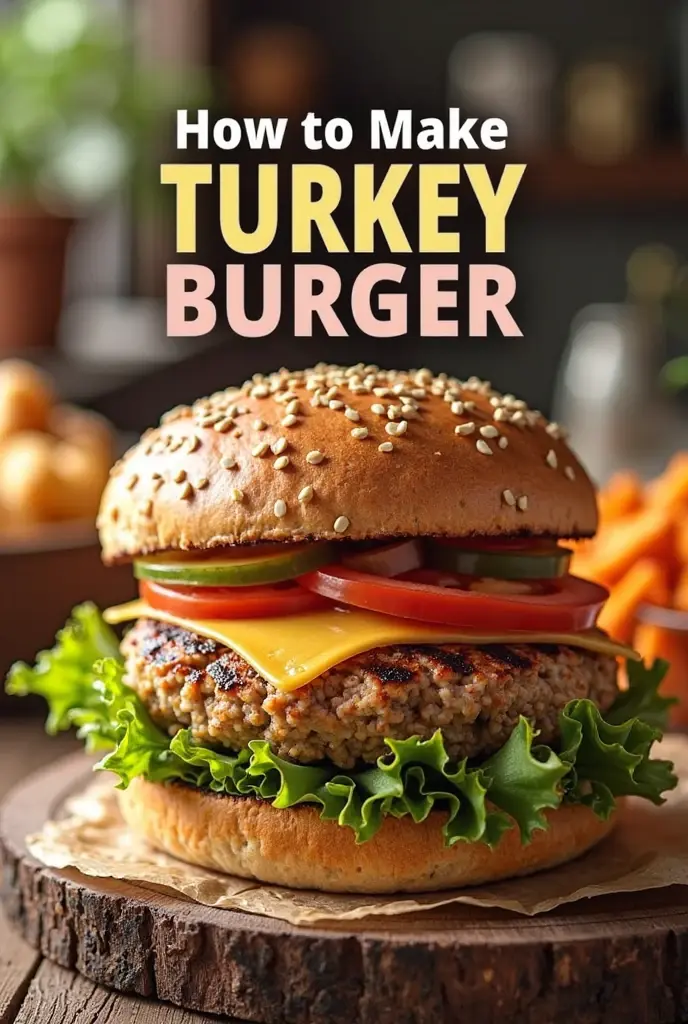Introduction
If you’re looking for a healthier alternative to beef burgers without sacrificing flavor, turkey burgers are the perfect choice. Juicy, tender, and packed with seasonings, this homemade turkey burger recipe is easy to prepare and ideal for a quick weeknight dinner, backyard BBQ, or even meal prep. The best part? You can customize the flavors with your favorite spices and toppings to create a delicious burger that everyone will enjoy.
Ingredients
- 1 lb ground turkey (preferably 93% lean)
- 1 egg (helps bind the patties)
- ½ cup breadcrumbs (regular or panko for extra texture)
- 2 garlic cloves, minced
- ½ small onion, finely chopped or grated
- 1 tablespoon Worcestershire sauce
- 1 teaspoon paprika
- 1 teaspoon salt
- ½ teaspoon black pepper
- ½ teaspoon dried oregano (optional)
- 1 tablespoon olive oil (for cooking)
- Burger buns (toasted)
- Toppings of choice: lettuce, tomato, cheese, pickles, avocado, or condiments
- Durability and Style – This lastest Howork stand mixer equips with 660W high performance pure copper…
- 6.5Qt Food Grade Bowl with handle – 6.5QT stainless steel mixing bowl provides enough capacity to ma…
- 10+Pulse Speed Settings – 10 speeds for nearly any task or recipe.The powerful performance of planet…
Preparation Steps
Step 1: Mix the Patty Ingredients
- In a large mixing bowl, combine ground turkey, egg, breadcrumbs, garlic, onion, Worcestershire sauce, paprika, salt, pepper, and oregano.
- Mix gently using your hands or a spoon. Do not overmix, as it can make the patties tough.
Step 2: Shape the Patties
- Divide the mixture into 4 equal portions.
- Shape each portion into a round patty about ½-inch thick.
- Place the patties on a plate and let them rest in the refrigerator for 10–15 minutes to firm up.
Step 3: Cook the Burgers
Stovetop Method:
- Heat olive oil in a skillet over medium heat.
- Cook patties for 5–6 minutes on each side, until the internal temperature reaches 165°F (74°C).
Grill Method:
- Preheat the grill to medium-high heat and lightly oil the grates.
- Grill the patties for 5–6 minutes per side until fully cooked through.
Step 4: Assemble the Burgers
- Place the cooked turkey patties on toasted buns.
- Add your favorite toppings—lettuce, tomato, cheese, avocado, or condiments.
- Serve immediately and enjoy!
Conclusion
This homemade turkey burger recipe is juicy, flavorful, and healthier than a traditional beef burger. It’s simple to prepare, versatile with toppings, and guaranteed to satisfy your burger cravings without the guilt. Whether you’re cooking for family, friends, or just a quick solo meal, these turkey burgers are a must-try!
Have you given our recipe a try?
0.0
0.0 out of 5 stars (based on 0 reviews)
Excellent0%
Very good0%
Average0%
Poor0%
Terrible0%
